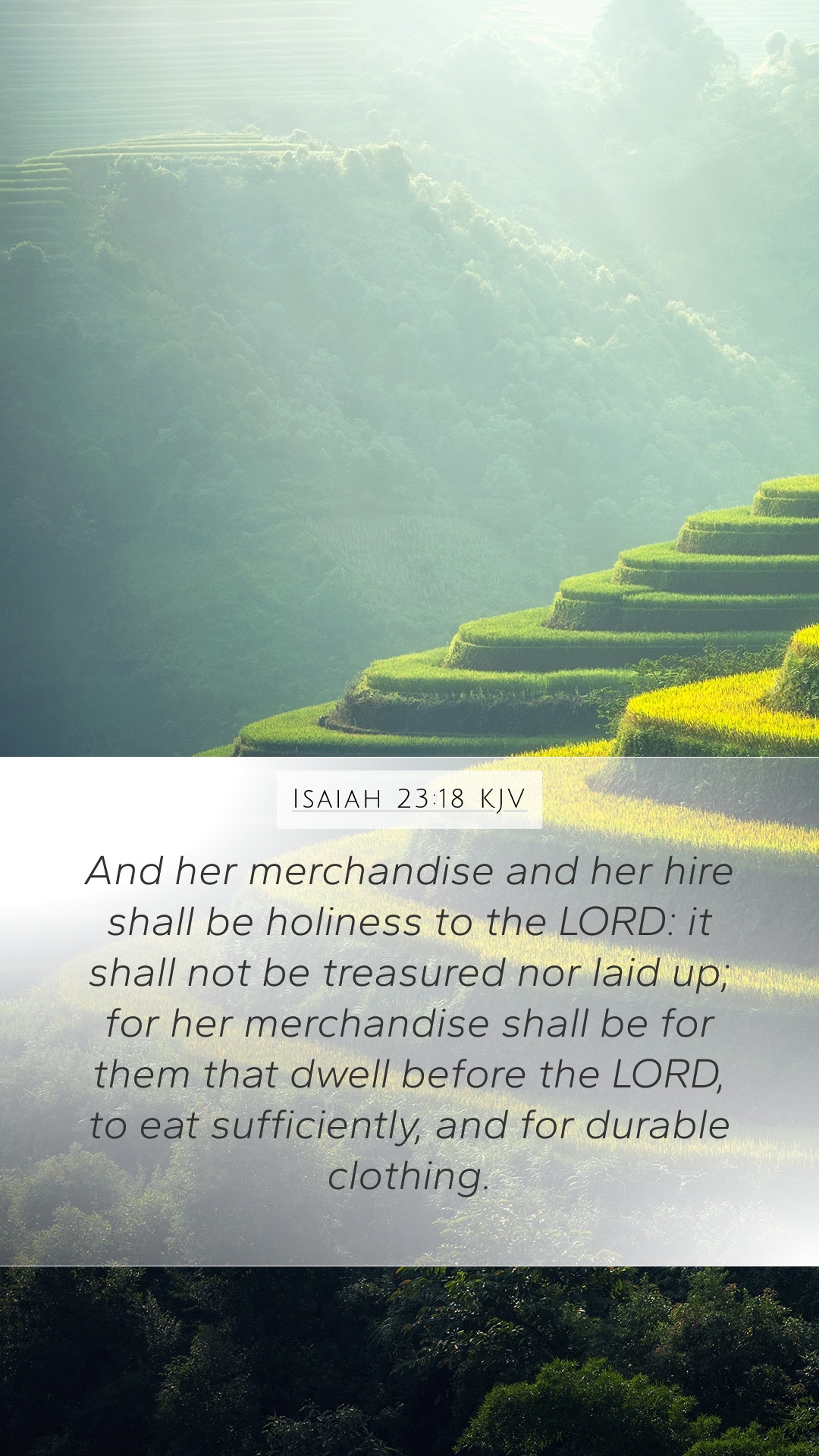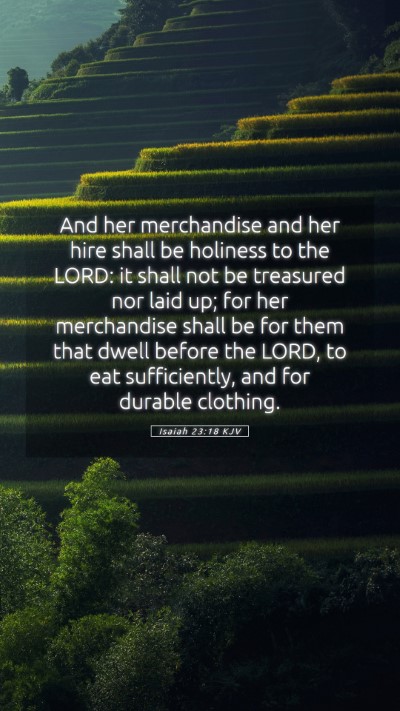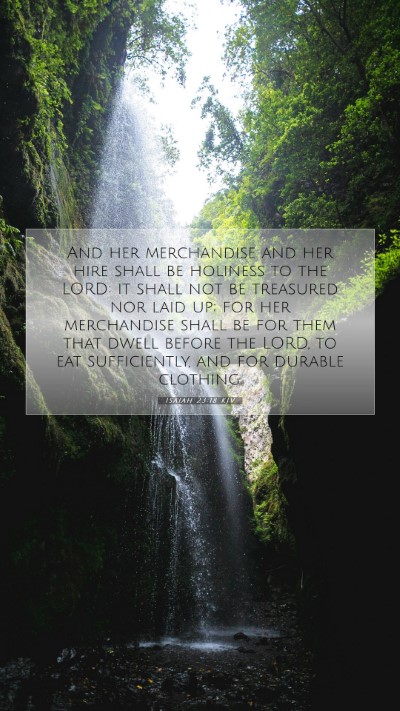Understanding Isaiah 23:18
Isaiah 23:18 reads:
"And her merchandise and her hire shall be holiness to the Lord: it shall not be treasured nor laid up; for her merchandise shall be for them that dwell before the Lord, to eat sufficiently, and for durable clothing."
This verse captures a broader theme set within the prophetic context of the book of Isaiah, focusing on the consequences of judgment and subsequent restoration. The following commentary provides Bible verse meanings, Bible verse interpretations, and Bible verse explanations pertaining to Isaiah 23:18.
Contextual Overview
This passage is part of a series of prophecies against Tyre, a prominent trading city known for its wealth and influence. The chapter addresses the fate of Tyre due to its arrogance and sin. After the judgment is pronounced, there emerges a promise of holiness that reflects a restoration phase for its commerce and livelihood.
Verse Breakdown
- Holiness to the Lord: The term "holiness" signifies that the possessions and gains of Tyre will no longer be used for selfish gain. Instead, they will serve God's purposes, highlighting the transformative power of divine judgment.
- Non-treasured and Non-laid up: The rejection of hoarding wealth implies an economic and spiritual shift where the focus moves from personal gain to collective blessing. This indicates a decline of a selfish economy in favor of one that serves God’s people.
- Action for the Lord's people: The phrase "for them that dwell before the Lord" suggests that the people of God will benefit from this commerce. It ensures that both material needs (food) and spiritual needs (clothing as a symbol of identity and dignity) will be met.
Insights from Commentaries
In analyzing this verse, we can summarize insights from several public domain commentaries:
- Matthew Henry: Henry emphasizes the idea that God's purpose for Tyre's restored wealth is to be consecrated for holy use, serving the needs of the faithful. He articulates that such transformation reflects a divine providence that turns judgment into a means of grace.
- Albert Barnes: Barnes points out that this passage serves as a prophetic anticipation of a time when the wealth accumulated through sinful practices will be redirected towards holy ends. This speaks to an eventual reconciliation and service to God which will bless His people.
- Adam Clarke: Clarke elaborates on the practical implications, noting that this repurposing of Tyre’s wealth symbolizes the broader theme of God’s kingdom—where earthly treasures become instruments of divine purpose, rather than mere possessions for self-indulgence.
Theological Reflections
This verse ultimately embodies a broader theological notion—the reconciliation of worldly affairs with divine intent. The concept that worldly goods can, and should, contribute to God's glory offers a significant implication for Bible study insights.
Applications Today
For contemporary readers, this verse encourages a reflection on how we utilize our resources. Questions arise regarding:
- Are our possessions serving God's kingdom?
- How do we distinguish between personal gain and communal good?
- What role does our wealth play in our spiritual journey?
Related Cross References
- Malachi 3:10: The call to bring the tithes into the storehouse indicates that the faithful use of resources is foundational to God’s covenant with His people.
- Matthew 6:19-21: This passage similarly warns against laying up treasures on earth while encouraging focus on spiritual investments.
- Acts 2:44-45: The early Church's communal living exemplifies what God’s people look like when they prioritize serving and sharing resources for the kingdom.
Conclusion
In conclusion, Isaiah 23:18 serves as a reminder of God’s redemptive purpose for our resources. As we study this verse, it becomes clearer how the actions and decisions we make with our material possessions—be they small or great—can resonate with the divine narrative of holiness and service. Engaging deeply with this scripture can bring profound Bible verse understanding and inspire transformative actions in our lives.
Further Study Recommendations
For those interested in deepening their understanding, consider participating in Bible study groups, utilizing Bible study tools, or exploring various Bible study resources. Lessons from this verse can compound through shared discussions and insights, enriching your overall biblical knowledge.


